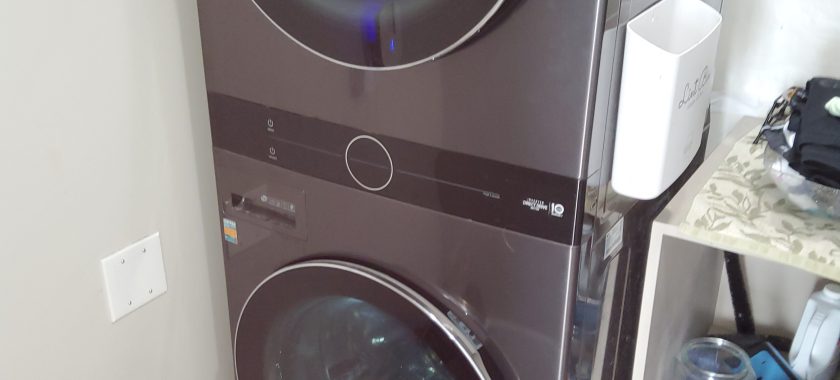When your washing machine starts emitting a burning rubber smell, it’s not something to ignore. That unpleasant odor usually points to mechanical friction or overheating — often linked to the drive belt or motor. Acting quickly can prevent a small issue from escalating into a major repair or a complete appliance breakdown. Let’s explore the most common reasons behind this burning smell and what steps you should take before the situation worsens.
1. The Role of the Drive Belt in Your Washing Machine
The drive belt is a crucial part of your washer’s mechanics. It connects the motor to the drum, allowing the drum to spin during wash and spin cycles. Over time, this belt can become loose, worn out, or misaligned.
When the belt slips while the motor is turning, it creates friction. That friction generates heat — and with rubber material involved, the result is a burning rubber smell. If the belt continues to slip, it could wear down rapidly, break, or even melt slightly, leaving scorch marks inside the machine.
Signs of a slipping drive belt include:
- The drum doesn’t spin as powerfully as before.
- You hear a squealing or screeching noise during operation.
- There’s a noticeable burning odor during the spin cycle.
If you detect these symptoms, it’s best to stop the machine immediately. Continuing to run it could cause further damage to the belt and potentially harm the motor.
2. Motor Problems That Can Cause Burning Smells
If the drive belt isn’t the issue, the source of the smell could be the motor itself. Washing machine motors work hard during each cycle, and when components such as the bearings or windings begin to fail, they can overheat.
Overheating causes the motor’s insulation or internal wiring to burn slightly, producing that distinct burning rubber or electrical odor. In some cases, lint or dust buildup inside the motor housing can ignite when temperatures rise.
Typical indicators of motor issues include:
- The machine shuts off mid-cycle or struggles to start.
- The smell is stronger near the back or bottom of the washer.
- You hear humming, buzzing, or grinding noises from the motor area.
Motor repairs can be complex and dangerous if you’re unfamiliar with electrical systems, so professional service is highly recommended.
3. Other Possible Causes of the Burning Rubber Smell
While the drive belt and motor are the most common culprits, there are other potential causes worth checking:
- Drum or Tub Bearing Friction
Worn bearings can cause the drum to rub against surrounding components. This creates friction and can emit a rubbery or metallic burning smell, especially during high-speed spin cycles.
- Faulty Pulley or Misalignment
If the pulley that drives the belt is out of alignment or damaged, it can cause the belt to drag unevenly, again generating friction and heat.
- Electrical Wiring or Short Circuits
Burning smells can sometimes come from wiring or electrical connectors overheating due to poor insulation or a short circuit. The odor might resemble burnt plastic rather than rubber.
4. What to Do When You Notice the Smell
- Turn Off and Unplug the Machine Immediately.
Safety comes first. Disconnect the appliance from the power source to prevent electrical hazards or further mechanical damage.
- Avoid Using the Washer Until Inspected.
Continuing to run the machine can worsen the damage or even pose a fire risk.
- Check for Visible Signs of Damage.
If you feel comfortable doing so, remove the back panel and inspect the belt for cracks, burns, or melting. Look for black residue or discoloration near the motor.
- Don’t Attempt Major Repairs Yourself.
Diagnosing or replacing internal components, especially the motor, requires professional tools and expertise. Improper handling can void warranties or create new problems.
5. Preventing Future Burning Smells
You can reduce the risk of burning smells and mechanical wear by following a few maintenance tips:
- Avoid Overloading: Overloading puts strain on the drive belt and motor, causing them to overheat.
- Keep Vents and Filters Clean: Ensure proper airflow and prevent overheating.
- Schedule Regular Maintenance: Having a professional technician inspect your washer annually can help identify wear before it becomes a problem.
- Use the Right Detergent: Excess suds from the wrong detergent type can cause the motor to work harder than necessary.
6. When to Call a Professional
If you’ve unplugged your washing machine and confirmed the smell persists or returns after restarting, it’s time to call a technician. A qualified repair specialist will test the belt, motor, and electrical connections safely.
Attempting to replace the drive belt or repair the motor without experience can lead to injury or further damage. Professionals have the right tools to determine whether your machine needs a simple belt replacement or a deeper motor repair.
7. Reliable Repair Solutions in Chula Vista
If your washing machine smells like burning rubber, don’t wait until it stops working completely. At Chula Vista Appliance Repair Company, our technicians specialize in diagnosing and repairing all types of washer problems — from slipping drive belts to electrical motor issues.
We provide fast, professional, and affordable service designed to restore your washer’s performance and eliminate safety risks. Whether it’s a minor mechanical fix or a full motor replacement, our team has the expertise to handle it efficiently.
Call Chula Vista Appliance Repair Company today to schedule a diagnostic visit. We’ll get your washer back to running safely and smoothly — without the burning smell.
Contact us
(619) 880-5508


